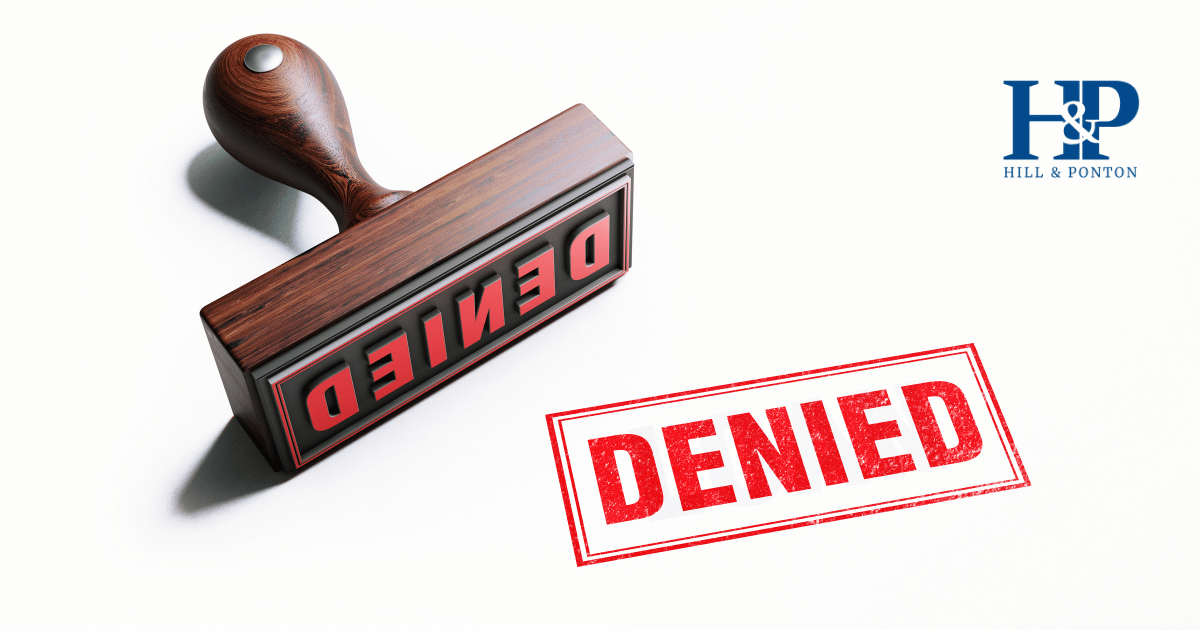Getting a favorable C&P exam only to have your VA disability claim denied can be a really frustrating and confusing experience for a veteran, and it is a more common occurrence than you’d think. Here’s what to do if your claim was denied despite a favorable C&P exam.
Find Out Why the Claim Was Denied
There are many reasons why a claim could be denied despite favorable findings during the C&P exam. Some of the reasons include:
- Inconsistencies in medical evidence
- Failure to establish service connection
- Contradicting additional opinions and reviews
Inconsistencies in Medical Evidence
A common reason for denial is inconsistencies between the C&P examiner’s findings and other medical records the veteran may have. If there are conflicting results from different exams or other evidence, VA may deny a claim.
For example, if your C&P exam shows a connection to your service but there are other records that don’t support that connection or provide other possible reasons for your condition, the VA may side with the conflicting evidence.
Failure to Establish Service Connection
A favorable C&P exam may still lead to a denial if it doesn’t clearly establish service-connection.
The nexus letter, which will link your condition to your medical service, is a critical part of the claims process and its success. Without a clear link, even a positive outcome on an exam may not be enough to get your claim approved by the VA.
Contradicting Additional Opinions and Reviews
Sometimes, the VA will rely on additional medical opinions that may contradict a favorable C&P exam. For instance, a VA Medical Center may provide an opinion that the VA considers more persuasive than the examiner gave. This additional opinion could override the positive findings of a C&P exam.
Real-Life Examples
Below are a few real examples of veterans who struggled with a denial even though they had a favorable C&P exam.
Example 1: Denial Based on Secondary Examiner’s Opinion
A veteran had a favorable C&P exam diagnosing the veteran with IBS, sleep apnea and joint pain. However, the examiner did not include a clear statement linking these conditions to military service.
Later, a secondary examiner reviewed the notes without physically examining the veteran and concluded that the conditions were not service-connected. The claim was denied based on this secondary opinion, highlighting the importance of a clear nexus statement.
Example 2: Missing Nexus Statement
A veteran shared that his or her C&P exam results were favorable, but that the examiner had failed to include a nexus statement, which is critical. The VA scheduled another exam, where the new examiner only reviewed the notes and didn’t perform a physical exam.
The lack of a clear nexus statement and the reliance on a secondary examiner’s review led to the denial of the claim. This example underscores how missing key statements can impact the outcome, even with favorable initial findings.
This problem could have been corrected by the veteran’s having his or her own physician provide a nexus statement to fill in the gaps left by the C&P examiner’s opinion.
What Can I Do if My Claim is Denied with a Favorable C&P?
If your claim is denied but you had a favorable C&P exam, don’t lose hope. There are still some actions you can take. Some avenues you can consider include:
- Higher-Level Review (HLR): This is one of the first steps you can take to fight a denial and involves a senior VA employee reviewing your claim. They look for errors in the decision, such as overlooked evidence or mistakes in interpreting the law. To request an HLR, you will submit VA Form 20-0996.
- Supplemental Claims: If you have new evidence not originally included in your initial claim, you can file a supplemental claim appeal. This may involve new medical opinions or additional medical evidence. To file a supplemental claim, use VA Form 20-0995.
- Appealing to the Board of Veterans’ Appeals: If you’re unsatisfied after an HLR or supplemental claim, a third option is to appeal to the Board. This is a more formal process where a Veterans Law Judge (VLJ) reviews your case. For these situations, it’s often beneficial to have representation, such as a Veterans Service Organization (VSO) or an attorney.
Navigating the VA disability claims process can be challenging, especially when faced with a denial despite a favorable C&P exam.
By understanding the reasons behind these denials and taking proactive steps, you can strengthen your claim and improve your chances of approval. Stay informed, be persistent and utilize the resources available to you.
Remember, there are many organizations and individuals ready to support you in getting the benefits you’ve earned and deserve. Did you know that Matthew Hill has written THE book on how to navigate the complicated VA claim process? And it’s yours for free, no strings attached.




